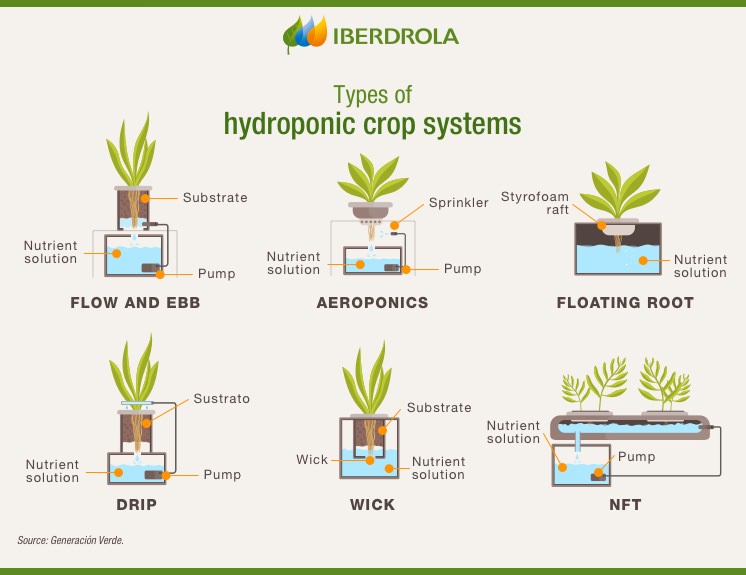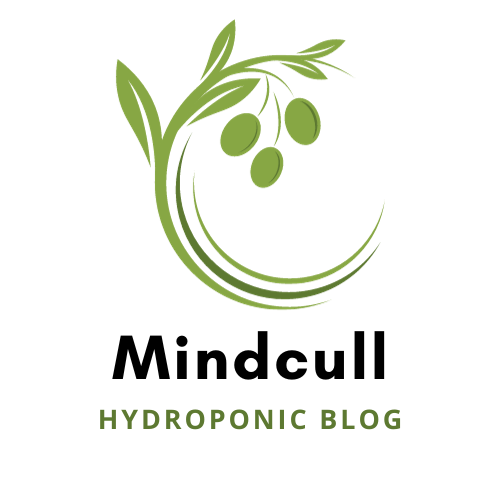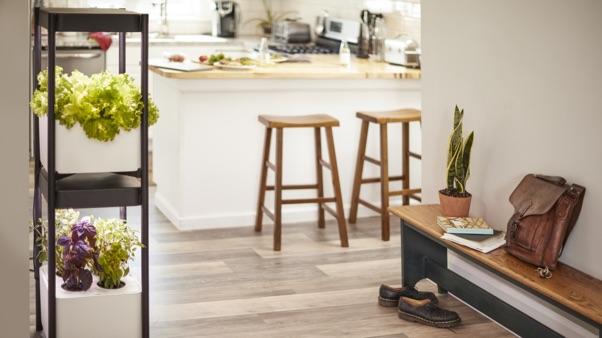Unlocking the Green Revolution: Benefits of Hydroponics
Welcome to the fascinating world of hydroponic gardening! If you’ve ever wondered about the benefits of growing plants without soil, you’re in for a treat. In this article, we’ll explore the advantages of hydroponic gardening in a fun and engaging way. So, let’s dive right in!
First off, let’s talk about how hydroponic gardening can save space. Unlike traditional gardening, which relies on large plots of land, hydroponic systems allow plants to thrive in a compact environment. With vertical gardens, hanging baskets, or even small tabletop setups, you can grow a wide variety of plants right in your own home or even in limited outdoor spaces.
Now, let’s move on to the second fantastic benefit of hydroponic gardening: water efficiency. Traditional gardening can be water-intensive, but hydroponic systems use up to 90% less water. That’s right, by delivering water and nutrients directly to the plants’ roots, hydroponics allows for precise control and minimal waste. So not only will you save water, but you’ll also help conserve our planet’s precious resources.
Last but not least, hydroponic gardening offers higher yields and faster growth rates. Since plants receive a well-balanced diet of water and nutrients, they can focus their energy on producing abundant fruits, vegetables, and herbs. Plus, the controlled environment of hydroponics provides plants with optimal conditions for growth, leading to faster maturity and harvest times.
With these benefits in mind, it’s no wonder that hydroponic gardening has gained popularity among both seasoned gardeners and enthusiastic beginners. So, let’s roll up our sleeves and explore the exciting world of hydroponics together!

The Benefits of Hydroponic Gardening: Growing Plants without Soil
Hydroponic gardening is a modern and innovative approach to growing plants without using soil. Instead, it relies on a nutrient-rich water solution that provides all the necessary elements for plant growth. This method has gained popularity in recent years due to its numerous benefits, making it a preferred choice for both commercial and hobbyist gardeners. In this article, we will explore the advantages of hydroponic gardening and why it is becoming a popular alternative to traditional soil-based cultivation methods.
The Environmental Benefits of Hydroponic Gardening
The environmental benefits of hydroponic gardening are significant and make it an attractive choice for gardeners who are conscious of their ecological footprint. One of the primary advantages is water conservation. Hydroponic systems use up to 90% less water compared to traditional soil-based gardening. This is achieved through recirculating systems that capture, filter, and reuse water, minimizing wastage. Additionally, the controlled environment of hydroponic gardening reduces the need for pesticides and chemical fertilizers, making it an eco-friendly way to grow plants.
Another environmental benefit is the reduction in land usage. Hydroponic systems can be set up vertically, utilizing limited space efficiently. This is especially beneficial in urban areas where land availability is limited. By growing vertically, more plants can be cultivated in a smaller footprint, maximizing productivity while minimizing the demand for land.
Furthermore, hydroponic gardening eliminates the risk of soil erosion and contamination, as there is no soil involved. This prevents the runoff of harmful chemicals and nutrients into nearby water bodies, protecting the local ecosystem. The absence of soil-borne pests and diseases also reduces the need for harmful chemical pesticides, making hydroponic gardening a safer and more sustainable option for the environment.
Improved Plant Growth and Yield
Hydroponic gardening provides an optimal environment for plant growth, resulting in healthier plants and higher yields. The precise control over factors such as nutrient levels, pH balance, and lighting ensures that plants receive the ideal conditions for growth. This leads to accelerated growth rates, allowing plants to reach maturity faster than in traditional soil-based gardening.
The controlled environment of hydroponic systems also eliminates variables and uncertainties associated with weather conditions, allowing for year-round gardening and consistent production. This is particularly advantageous for regions with extreme climates or limited growing seasons.
In addition to faster growth, hydroponic gardening often results in higher yields compared to traditional gardening methods. As the plants have access to a constant supply of nutrients, they can focus their energy on development and fruit production, resulting in larger and more abundant harvests.
Greater Nutritional Value and Taste
Plants grown through hydroponic gardening tend to have a higher nutritional value and superior taste compared to those grown in soil. The precise control over nutrient delivery allows for a fine-tuning of the plant’s nutrient intake, ensuring that it receives all the necessary elements in the ideal proportions. This results in plants that are more nutrient-dense, providing a healthier and more flavorful source of food.
Furthermore, hydroponically grown plants are not exposed to soil contaminants and pollutants, reducing the risk of heavy metal or chemical contamination. This makes them a safer choice for consumption, particularly for individuals with dietary restrictions or health concerns.
The controlled environment of hydroponic gardening also allows for the cultivation of plants that may not thrive in certain geographic regions. By providing the optimal conditions for growth, plants can reach their full potential, resulting in better taste and overall quality.
Reduction in Maintenance and Labor
One of the practical benefits of hydroponic gardening is its low maintenance requirements. Unlike traditional gardening, there is no need for tasks such as weeding or tilling the soil. Hydroponic systems are designed to be efficient and self-contained, requiring minimal intervention once set up correctly.
The elimination of soil also results in fewer pest problems, further reducing the need for pesticides and insecticides. Additionally, the controlled environment of hydroponic systems minimizes the risk of plant diseases, eliminating the need for preventive treatments or costly remedies.
Moreover, hydroponic gardening can be automated to a large extent, with systems that regulate lighting, nutrient delivery, and water circulation. This reduces the amount of time and effort required to maintain the garden, making it an attractive option for individuals with limited time or physical capabilities.
Versatility and Flexibility
Hydroponic gardening offers incredible versatility and flexibility, making it suitable for a wide range of plant species and growing conditions. The controlled environment allows for the cultivation of plants that may not thrive in certain climates or soil types. By providing the ideal conditions for growth, hydroponics enables gardeners to experiment with unique and exotic plant species with successful outcomes.
This method of gardening is not limited to traditional outdoor spaces but can be adapted to indoor environments as well. With the use of artificial lighting and climate-controlled systems, hydroponics allows for year-round gardening in any location. This makes it an ideal choice for urban dwellers, apartment dwellers, or individuals with limited outdoor space.
Hydroponic systems can also be tailored to suit various plant sizes and growth mediums. From small-scale home systems to large-scale commercial setups, there are options available to accommodate different garden sizes and personal preferences. This flexibility and adaptability make hydroponic gardening an appealing choice for a wide range of gardeners.
Efficiency in Resource Usage
Hydroponic gardening is known for its efficiency in resource usage, making it a sustainable and cost-effective option. As mentioned earlier, hydroponic systems require significantly less water compared to traditional soil-based gardening. This is achieved through precise watering schedules, recirculating systems, and the absence of wastage due to evaporation or runoff.
In addition to water savings, hydroponic systems are designed to optimize nutrient usage. The nutrient solution can be reused multiple times, minimizing waste and reducing costs associated with purchasing fertilizers. By providing plants with the exact nutrients they need, there is no excess or dilution of essential elements, resulting in efficient nutrient uptake by the plant.
Furthermore, the controlled environment of hydroponic systems allows for energy efficiency. By utilizing LED lights and advanced climate control systems, gardeners can minimize energy consumption and create a sustainable and eco-friendly growing environment.
Overall, hydroponic gardening offers numerous benefits that make it an attractive choice for both professional and hobbyist gardeners. From its environmental advantages to improved plant growth and nutrition, this innovative method of cultivation provides a flexible and efficient approach to growing plants. Whether it’s for personal enjoyment, food production, or sustainability efforts, hydroponic gardening has the potential to revolutionize the way we cultivate plants. So why not give it a try and experience the benefits for yourself?
Key Takeaways: Benefits of Hydroponic Gardening
- Growing plants without soil is possible through hydroponic gardening.
- Hydroponic gardening saves water as it recirculates the nutrient-rich water.
- Plants grow faster in hydroponic systems as they receive direct nutrients and oxygen.
- Hydroponic gardening allows for year-round cultivation, regardless of weather conditions.
- There is less risk of pests and diseases in hydroponic gardening due to the controlled environment.
Frequently Asked Questions
Curious about the benefits of hydroponic gardening? Look no further! We’ve compiled some commonly asked questions and answered them for you.
1. How does hydroponic gardening improve crop yields?
Hydroponic gardening provides an optimized environment for plants, allowing them to grow faster and produce more yields compared to traditional soil-based gardening. By delivering nutrients directly to the plant’s roots in a water-based solution, plants can access essential elements easily and efficiently. Additionally, hydroponic systems often use grow lights that mimic natural sunlight, providing plants with optimal light conditions for photosynthesis.
In hydroponic gardening, plant roots are always hydrated, so they don’t have to work hard to search for water in the soil. This allows plants to focus more energy on growing, resulting in faster and healthier growth. With the proper control of environmental factors like temperature, humidity, and pH levels, hydroponic gardening creates an ideal setting for plants to flourish and achieve higher crop yields.
2. What are the advantages of hydroponic gardening for urban areas?
Hydroponic gardening offers several advantages for urban areas where space is limited. One significant benefit is the ability to grow plants vertically, maximizing the use of available space. Vertical hydroponic systems, such as tower gardens or vertical racks, allow for the cultivation of plants in multi-level structures, making them perfect for small balconies, rooftops, or even indoor settings.
Additionally, hydroponic gardening eliminates the need for soil, which can be challenging to find and transport in urban areas. By using nutrient-rich water instead, hydroponic gardens can thrive in any location. Moreover, hydroponic systems can be easily automated with timers and sensors, making it easier for urban gardeners to manage and monitor their plants in a busy city environment.
3. How does hydroponic gardening conserve water?
Hydroponic gardening is known for its water-saving capabilities. Unlike traditional soil-based gardening, hydroponic systems recirculate water, minimizing water waste significantly. Water is continuously circulated and reused, with only minor amounts lost through evaporation or plant uptake.
Furthermore, hydroponic systems can be designed to use water more efficiently by incorporating techniques such as drip irrigation or nutrient film technique (NFT) systems. These methods deliver water directly to the plant roots, ensuring minimal water loss due to runoff or evaporation. Overall, hydroponic gardening can reduce water usage by up to 90% compared to conventional farming methods.
4. What are the environmental benefits of hydroponic gardening?
Hydroponic gardening offers several environmental benefits. Firstly, since hydroponic systems don’t require soil, it helps prevent soil erosion and degradation caused by agricultural practices. This conservation of soil helps maintain the overall health of ecosystems.
Secondly, hydroponic gardening eliminates the need for pesticides and herbicides, as pests and weeds are usually less prevalent in soilless environments. This reduces the pollution of waterways and minimizes the negative impacts on surrounding wildlife.
Lastly, hydroponic gardening can be done indoors or in controlled environments, reducing the need for long-distance transportation of produce. This helps decrease carbon emissions associated with the transportation of agricultural goods, contributing to a greener and more sustainable future.
5. Does hydroponic gardening require less maintenance compared to traditional gardening?
Yes, hydroponic gardening generally requires less manual labor and maintenance compared to traditional gardening. Since hydroponic systems provide plants with the proper amount of water and nutrients, there is no need for constant watering or fertilizing.
Additionally, hydroponic gardens are less susceptible to weed growth and pest infestations, reducing the need for regular weeding and pesticide applications. The controlled environment in hydroponic systems also minimizes the impact of weather conditions on plant growth, resulting in more consistent and predictable yields. However, it’s important to regularly monitor nutrient levels, pH, and other environmental factors to ensure optimal growth.

The Benefits of Growing with Hydroponics
Summary
Hydroponic gardening is a cool and innovative way to grow plants without soil. It’s perfect for growing veggies indoors or in areas with limited space. With hydroponics, plants get the nutrients they need directly from the water, resulting in faster growth and higher yields. Plus, it uses less water than traditional gardening methods. Hydroponic gardening also allows you to have better control over pests and diseases. So, if you want to grow your own fresh and healthy veggies, give hydroponics a try!
To sum it up, hydroponic gardening is a fun and efficient way to grow plants. It saves space, water, and works well for indoor gardening. With hydroponics, you have more control over your plants’ health and growth. So get ready to enjoy delicious homegrown goodness with hydroponic gardening!

